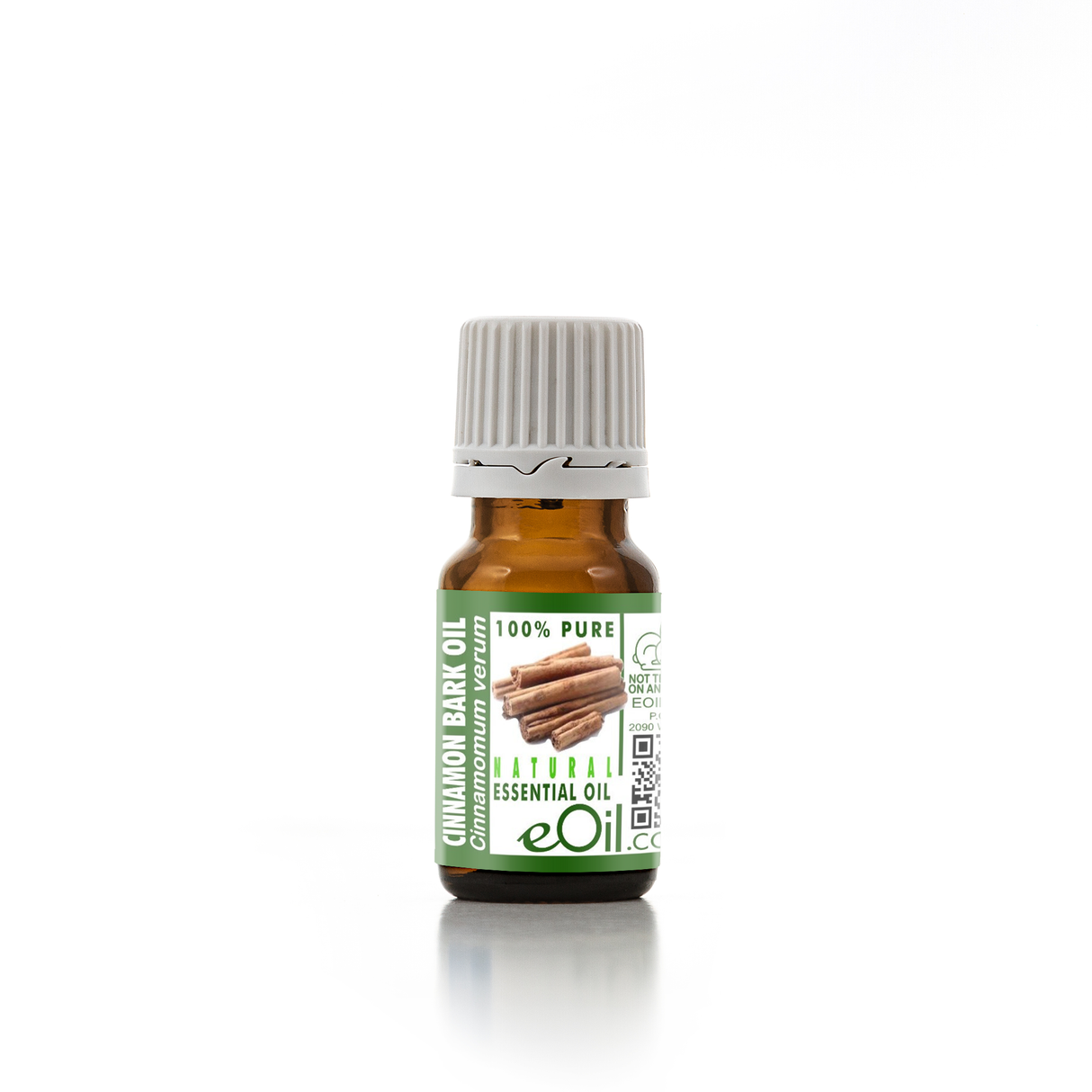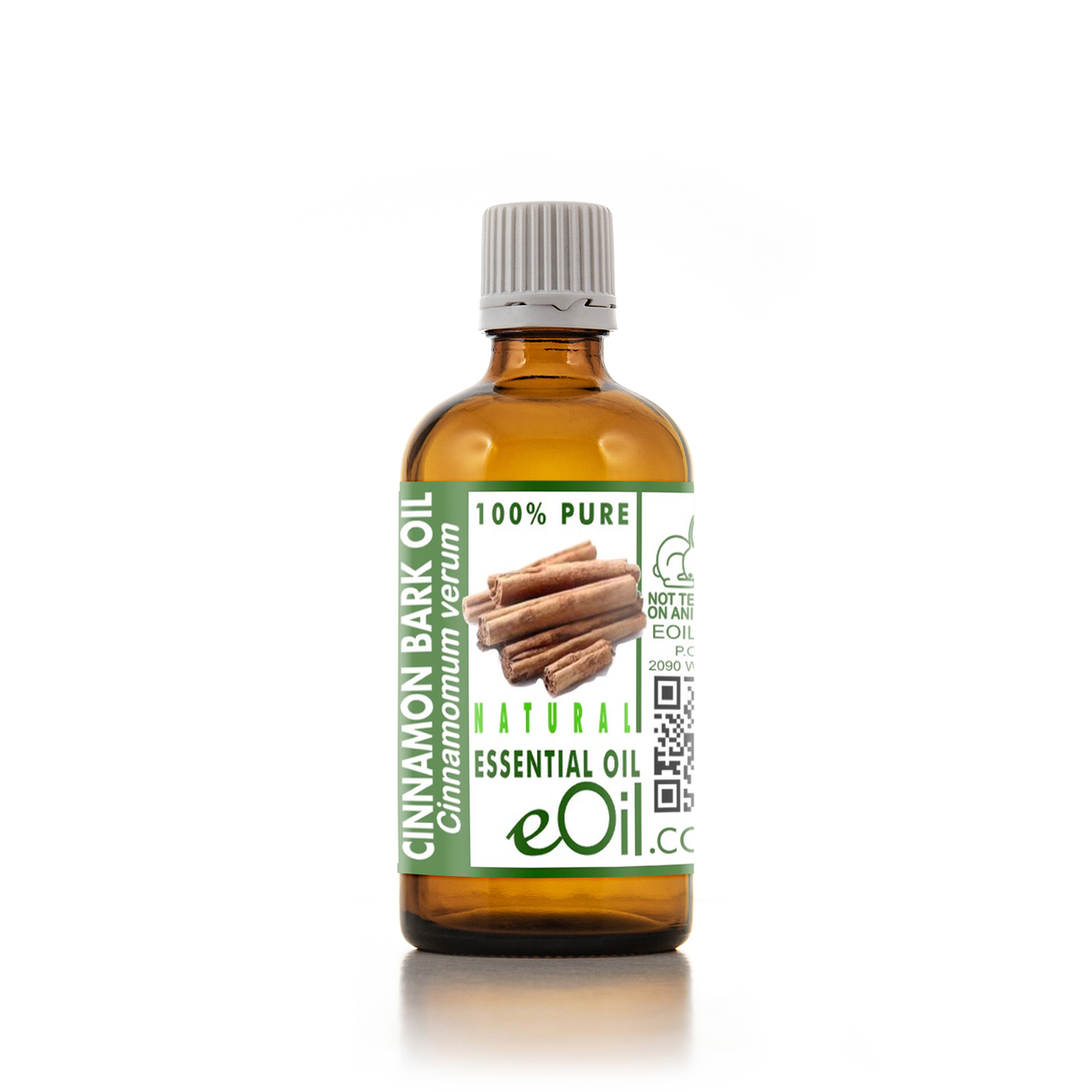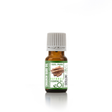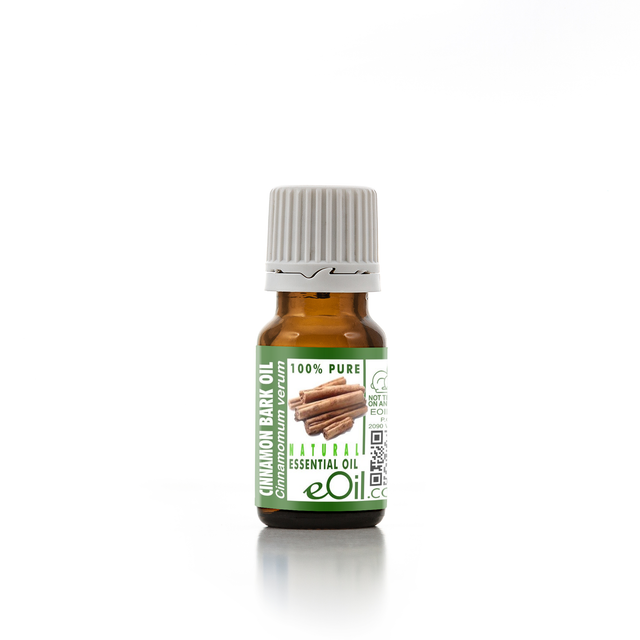Cinnamon Bark Essential Oil
Cinnamon Bark Essential Oil - 10 ML is backordered and will ship as soon as it is back in stock.
Description
Description
Cinnamon Bark Natural Essential Oil (Cinnamomum zeylanicum) is a pure, steam-distilled oil known for its warm, sweet-spicy aroma.
Prized in aromatherapy, cosmetics, and natural perfumery, it adds comfort and depth to blends.
Sourced from Madagascar and Sri Lanka, it is 100% pure and ideal for home wellness rituals
IDENTIFICATION
INCI name ; Cinnamomum Zeylanicum Bark Oil
CAS number 8015-91-6
SKU code ; EN-CIB-0010
EXTRACTION METHOD ; Steam Distilled Essential Oil
PARTS USED ; Dried inner bark
ORIGIN ; Madagascar / Sri Lanka
COMMON NAMES : Ceylon Cinnamon, True Cinnamon
APPEARANCE : Yellow to reddish brown coloured liquid
ODOUR NOTE : Strong, very warm, diffusive, spicy-sweet, penetrating aroma
QUALITY : 100 % pure and natural whole essential oil.
Approx. Shelf Life: 6 years
STORAGE CONDITION ; Store in a cool dark place
Cinnamon has been one of the spices exported by the Orient for 4000 years.
Known for its fortifying and purifying virtues, its numerous anti-infective properties (bacteria, viruses, parasites, fungi) make this essential oil an indispensable part of the home pharmacy kit.
Cinnamon bark oil is indicated for usages related to colds and flu, and for topical massages related to digestions and stomach pains.
Cinnamon bark oil can be more irritating to the skin than Cinnamon leaf oil and must therefore, be even more diluted before a skin application than cinnamon leaf oil.
Cinnamon leaf oil holds more Eugenol and less Phenols than Cinnamon bark oil. Cinnamon leaf oil is more indicated for usages related to soothing muscular and joints aches and can be used in a diffuser.
This oil can cause severe irritation if used undiluted.
CINNAMON BARK VS CINNAMON LEAF
Cinnamon bark and cinnamon leaf essential oils are both derived from the Cinnamomum zeylanicum or Cinnamomum verum tree, but they differ in terms of the plant parts used for extraction, chemical composition, aroma, and applications in aromatherapy, perfumery, and skincare preparations.
Plant parts used for extraction: Cinnamon bark essential oil is extracted from the tree's bark, while cinnamon leaf essential oil is extracted from the leaves.
Chemical composition: Cinnamon bark essential oil contains higher concentrations of cinnamaldehyde, which gives it a warm, spicy, and sweet aroma. On the other hand, cinnamon leaf essential oil contains higher amounts of eugenol, giving it a milder, more herbal, and somewhat medicinal aroma.
Aroma: Cinnamon bark essential oil has a richer, warmer, and sweeter aroma compared to cinnamon leaf essential oil. The latter has a lighter, more herbal scent, which is less sweet and warm.
Aromatherapy: In aromatherapy, cinnamon bark essential oil is often used for its warming and uplifting properties. It may help to relieve stress, increase focus, and support emotional well-being. Cinnamon leaf essential oil, with its milder scent and different chemical composition, is considered to have more soothing and calming properties, making it useful for relaxation and stress relief.
Perfumery: Cinnamon bark essential oil is more widely used in perfumery due to its richer, sweeter, and more distinct aroma. It adds a warm, spicy note to fragrances and blends well with other essential oils like vanilla, clove, and orange. Cinnamon leaf essential oil is less commonly used in perfumery, as its aroma is milder and less distinctive.
Cinnamon leaf essential oil is milder and considered safer for use in skincare products. However, it should still be used with caution and in proper dilution, as it may cause skin irritation in some individuals. It can be used in skincare formulations for its antimicrobial, antifungal, and antioxidant properties.
In conclusion, cinnamon bark and cinnamon leaf essential oils offer different benefits in aromatherapy, perfumery, and skincare preparations.
While they share some properties, their distinct chemical compositions, aromas, and applications make them unique and valuable in their own right.
Always remember to use essential oils with caution, properly diluted, and according to the recommended guidelines.
TRADITIONALLY USED
Cinnamon bark essential oil is highly valued in aromatherapy for its warming, spicy aroma and numerous therapeutic properties.
Here are some of the common uses of cinnamon bark essential oil in aromatherapy:
Mood enhancement: Cinnamon bark essential oil's warm, comforting scent can help elevate mood, alleviate feelings of depression, and promote emotional well-being.
Stress reduction: Its calming effect on the nervous system can help reduce stress, anxiety, and mental fatigue, making it ideal for relaxation and meditation.
Energizing and revitalizing: Cinnamon's stimulating properties can help improve focus, concentration, and mental clarity, making it an excellent choice for work or study environments.
Aphrodisiac: Cinnamon bark essential oil is believed to have aphrodisiac properties, which can help promote feelings of intimacy, sensuality, and passion.
Respiratory support: Its expectorant and anti-inflammatory properties can help clear congestion, soothe coughs, and alleviate symptoms of colds and flu.
Pain relief: The warming and analgesic properties of cinnamon bark essential oil can help soothe muscle aches, joint pain, and menstrual discomfort when used in massage blends or diffused in the air.
Immune system support: Cinnamon bark essential oil's antimicrobial, antiviral, and antifungal properties can help strengthen the immune system and protect against infections.
Room freshener: Diffusing cinnamon bark essential oil can help cleanse and purify the air, eliminating odors and creating a warm, inviting atmosphere.
It is important to note that cinnamon bark essential oil is a potent oil and should be used with caution. Always dilute the oil with a carrier oil for topical application.
RECIPES WITH CINNAMON BARK
Synergies | Recipes - cinnamon bark - stress relief blend
Synergies | Recipes - cinnamon bark - Energizing Focus Blend
Synergies | Recipes - cinnamon bark - Romantic Ambiance Blend
Synergies | Recipes - cinnamon bark - Immune Support Blend
Synergies | Recipes - cinnamon bark - Warm Spice Perfume
Synergies | Recipes - cinnamon bark - Exotic Sensuality Perfume
INSTRUCTIONS OF USE
Massages & body care
- Not recommended on skin use. Reserve for tagerget spot body massage only. Use 1 drop of essential oil for 30 ml selected carrier oil or selected butter (0.1 %concentration) ++
Diffusion
- Ultrasonic Diffusers for air purification, use 10 mn 3 times a day. 1-2 drops in 100 ml water. ++
Others
- Homecare. a few drops in base soap to disinfect surfaces
For more detailed information, please go check this LINK TO Instructions of use essential oils page
DO NOT USE UNDILUTED and seek medical and specialist advise when in doubt
SEE OUR PAGE ON PRECAUTION - HOW TO USE ESSENTIAL OILS SAFELY
PROPERTIES
Reported benefits & properties:
- Rich in cinnamaldehyde
- Powerful polyvalent Antiseptic.
- Very large spectrum Antibacterial.
- Fungicide, and anti-parasitic
- Antiviral and Immunity stimulant.
- Anti-inflammatory, anti-spasmodic
- Analgesic.
- Tonifying, stimulating.
- Warming effects
BLEND WELL WITH
Bay Leaf Laurel, Bergamot, Black Pepper, Cistus, Clove Bud, Eucalyptus radiata, Frankincense, Ginger, , Lemon, Lemongrass, Myrrh, Nutmeg, Sweet Orange, Patchouli, Peppermint, Petitgrain, Sage, Tea Tree, Thyme, Vetiver, Wintergreen.
For general sanitation: clove
To help fight skin parasites: tea tree, niaouli, clove
To help fight dust mite and home parasites: bay leaf, lavender
CAUTION
Do not use during the first 3 months of pregnancy / breastfeeding
Keep out of reach of children and pets.
As a general rule, always perform a skin patch test before using your essential oils for the first time.
Due to the natural origin of our products, some ingredients may contain trace proteins or allergens, especially in unrefined oils.
We strongly recommend performing a patch test on a small skin area 48 hours before full use to check for sensitivities.
Always dilute essential oils appropriately and follow our recommended usage guidelines to ensure safe application.
If you experience any irritation or allergic reaction, discontinue use immediately and consult a healthcare professional
For more detailed information, please go check this LINK TO Instructions of use essential oils page
DO NOT USE UNDILUTED and SEEK MEDICAL AND SPECIALIST ADVISE WHEN IN DOUBT.
SEE OUR PAGE ON PRECAUTION - HOW TO USE ESSENTIAL OILS SAFELY

Cinnamon Bark Essential Oil - 10 ML is backordered and will ship as soon as it is back in stock.




